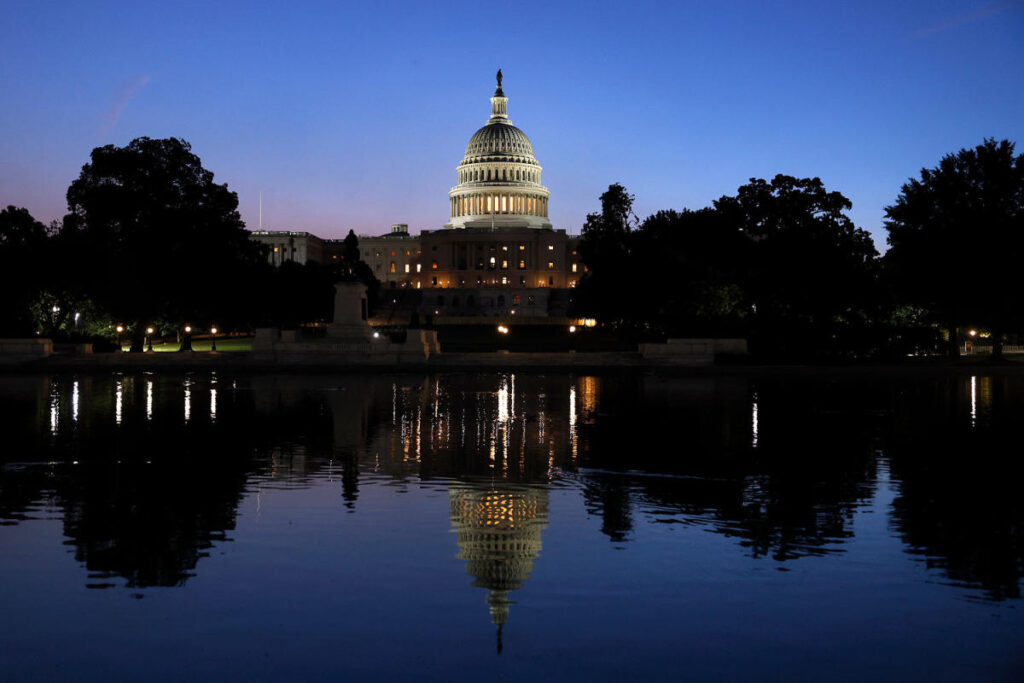A recent Chinese hacking campaign has raised alarms by targeting the telecommunications networks of the United States, with a specific focus on the mobile devices belonging to prominent political figures, including Republican presidential nominee Donald Trump and his running mate, Senator JD Vance. Sources with inside knowledge of the situation indicated that individuals connected to Vice President Kamala Harris’s campaign may also have been targeted; however, the details remain sparse. It is currently unclear whether the hacking efforts successfully compromised devices or intercepted communications involving these high-profile campaign officials. Additionally, the exact identities of others who may have been targeted within the Trump campaign remain undisclosed.
In response to these alarming developments, the FBI, alongside the Cybersecurity and Infrastructure Security Agency (CISA), has launched an investigation into the unauthorized access of U.S. commercial telecommunications infrastructure, which they have attributed to actors associated with the People’s Republic of China. The federal agencies took prompt action by notifying affected companies, offering technical support, and sharing intelligence to mitigate potential risks for others who may be vulnerable to such attacks. Importantly, the FBI has refrained from commenting on specific individuals targeted in this operation, indicating the sensitive nature of the ongoing investigation.
The U.S. intelligence community recently concluded that China’s cyber efforts have infiltrated three major American telecommunications providers: AT&T, Verizon, and Lumen Technologies. Among these companies, Lumen did not provide a statement regarding the hacking allegations, while AT&T has yet to respond to inquiries. However, Verizon’s spokesperson confirmed awareness of a sophisticated nation-state actor targeting U.S. telecommunications infrastructure, emphasizing their collaboration with federal law enforcement and cyber experts to assess and address any impacts stemming from the intrusion. Despite these targeted efforts, there has been no indication from officials that this hacking campaign is part of a broader “hack-and-leak” strategy aimed at influencing the 2024 U.S. presidential election.
In response to the allegations, a spokesperson from the Chinese embassy in Washington D.C. stated that they were unaware of the specifics of the situation and could not comment further. They asserted that the presidential elections are internal matters for the U.S., emphasizing that China has no intention to interfere and urging the U.S. not to make unfounded accusations during the electoral process. This quiet denial hints at the intricacies of international relations and the delicate sensitivities surrounding allegations of cyber intrusions in political affairs.
Despite speculations surrounding the potential motives behind the hacking, it remains uncertain whether the attacks were designed to influence the upcoming presidential election. China maintains a robust cyberespionage program, renowned for conducting extensive operations to gather intelligence on U.S. entities, both governmental and commercial. Concurrently, the current election cycle has witnessed escalated accusations from U.S. officials invoking the interference of foreign nations—specifically Iran and Russia—attempting to sway voter sentiment in favor of their preferred candidates. While Iran has largely denied such allegations, Russia’s state media has made cryptic acknowledgments of their activities.
The Office of the Director of National Intelligence (ODNI) has consistently held the position that, while China appears invested in undermining American democracy and targeting congressional candidates it opposes, it is not actively working to manipulate the 2024 presidential race. Given the recent reports of cyber intrusions targeting multiple campaigns, it remains to be seen whether the ODNI’s assessment will be re-evaluated in light of the newfound intelligence on China’s aggressive targeting of both the Trump and Harris campaigns. The ongoing investigation seeks not only to assess the extent of these breaches but also to inform strategies to protect electoral integrity amidst evolving cyber threats.

